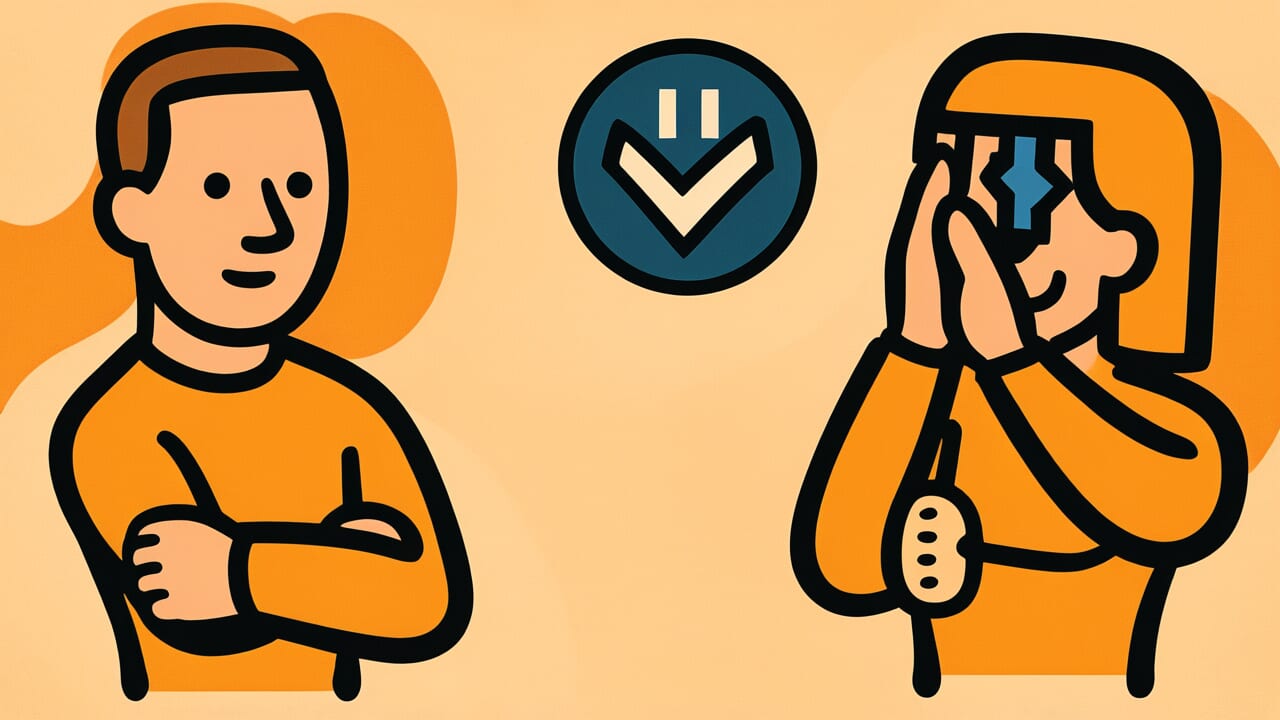How to Read “Beginning is half”
Hajime hanbun
Meaning of “Beginning is half”
“Beginning is half” teaches that the starting stage is the most important part of any task. If you can make a good start, the work is already half done.
This phrase is used before starting a new project or task, or when someone is about to begin something. It emphasizes the importance of taking the first step when people feel anxious or hesitant during the preparation stage.
Even today, this teaching applies to many situations. When writing a report, once you write the first line, the rest flows more easily.
When cleaning your room, once you start with one area, momentum builds and the whole space gets organized. In business, if you set the right direction at the start of a project, everything that follows goes smoothly.
In other words, this proverb expresses a timeless truth: making a good start greatly influences your later success.
Origin and Etymology
No clear written records explain the origin of “Beginning is half.” However, the structure of this phrase offers interesting insights.
Let’s focus on the word “half.” Why is it “half” when you’ve just started something? This isn’t just a number. It represents a uniquely Japanese sense of balance.
You haven’t completely finished, but you’ve already accomplished half. This subtle balance shows Japanese wisdom.
The background of this phrase likely comes from craftsman culture. Edo period craftsmen also used the phrase “preparation is eighty percent.” They learned from experience how important preparation and the initial approach were.
Choose good materials, prepare your tools, and make the first move correctly. Once you do that, everything naturally takes shape. The craftsmen’s real experience may be embedded in this saying.
In agricultural society too, if you made mistakes in planting time or method, no amount of later care would bring a good harvest.
On the other hand, if you planted seeds at the right time using the correct method, the later work went relatively smoothly. This life wisdom crystallized into the simple phrase “Beginning is half.”
Usage Examples
- For new projects, beginning is half, so let’s put all our effort into creating the initial proposal
- They say beginning is half for exam preparation too, so if I make a plan and start today, the path should open up
Universal Wisdom
Behind the proverb “Beginning is half” lies deep insight into human psychology.
Everyone feels overwhelmed when imagining the long road to completion. Facing a mountain of tasks, we feel lost thinking, “Do I really have to accomplish all of this?”
That pressure stops us in our tracks. But our ancestors realized something important. The hardest part isn’t finishing—it’s starting.
Why is starting so difficult? Because at the moment we begin, we face the most anxiety. “What if I fail?” “What if it doesn’t work out and I’m embarrassed?” “Maybe I can’t do this.”
These fears prevent us from standing at the starting line.
But once we start moving, humans have a mysterious power. Like the law of inertia, things that start moving tend to keep moving.
Once you take the first step, the next step becomes a bit easier. Before you know it, you’ve covered quite a distance.
“Beginning is half” is also a gentle encouragement for those of us who seek perfection. You don’t need to wait for a perfect start.
Just begin, and you’ve already accomplished half. That’s the message.
When AI Hears This
In physics, creating an ordered state requires large amounts of energy. But left alone, things naturally become chaotic. This asymmetry is key to understanding why the “beginning” matters so much.
For example, when building a structure, if the foundation tilts once, the tilt expands as you go higher. A one-centimeter deviation on the first floor can become over ten centimeters on the tenth floor.
To fix it, you must dismantle everything. Small initial errors amplify over time—that’s a physical property.
The same phenomenon occurs in information theory. Research shows that mistakes in the design stage of a program cost 100 times more to fix if discovered later.
Why? Because you need to rewrite all the information built on top of it. The initial state functions as “parent information” that affects everything that follows.
Even more interesting is that the human brain operates on the same principle. Information or impressions gained first become the reference point for later judgments.
Psychology calls this the “anchoring effect.” The brain prioritizes initial values as a system for efficient information processing. Physical laws influence even human cognition.
Lessons for Today
“Beginning is half” teaches modern people the courage to escape the trap of perfectionism.
In modern society, information overflows and too many choices exist. More people can’t get started. Isn’t there a better method? Shouldn’t I prepare more first?
While thinking this way, time just passes. But this proverb teaches us something important. Starting is far more valuable than waiting for perfect preparation.
What matters is recognizing that the act of “beginning” itself already has great value. If you take one step toward something new today, you’ve already traveled half the journey.
The remaining half? You’ve already started, so you can surely keep going.
Don’t fear beginning. Your first step can be clumsy or even wrong—that’s fine. Once you start moving, you can adjust your course.
But if you never start moving, nothing changes. Why not take a small step today toward something you’ve been putting off? At that moment, you’re already halfway there.



Comments